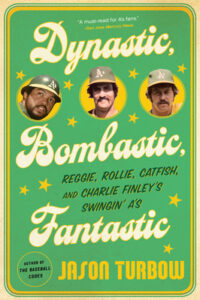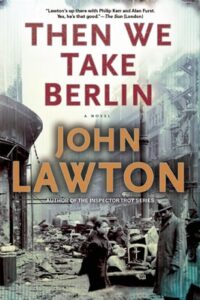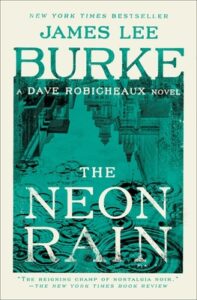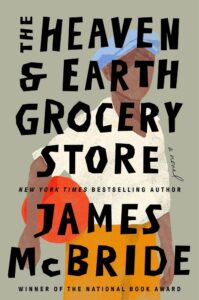Reader’s Notebook, 8/15/24

Dynastic, Bombastic, Fantastic – Jason Turbow
My brother in books David V handed me a copy of this on my visit to Kansas City in June. It took me some time to work through my stack of virtual books to crack it open, and once I did, I realized I had read it before, back in 2017. Looking back, I loved it so much then that I read it in two days. It’s not like this was Infinite Jest and I would be taking weeks and months away from books I had not read. So I continued, finishing it in three days this time.
Again, it was terrific. It covers the Oakland A’s dynasty of the early 1970s, how they were built, how they won three consecutive World Series, and then how free agency tore them apart. Owner Charles O. Finley, who many adults I grew up around hated because he moved the A’s from Kansas City, was the center of the storm. Turbow never gets into Finley’s politics, but he had a lot of personality traits similar to a certain old man currently running for president.
Other observations:
– It was interesting how during the Vietnam War a lot of MLB players would leave their teams in the middle of the season to do their two weeks of military reserve obligations.
– The A’s are considered one of the greatest dynasties ever. However, they were far from dominant. They easily could have lost any of the three league championship series they won, same for their three World Series. A few hits here, a few outs made there, and they are closer to the Buffalo Bills of the ‘90s as annual losers on the biggest stage, or even the Royals of the late ‘70s who couldn’t get out of the ALCS.
– Oakland couldn’t draw fans in the Seventies when they were the best team in baseball. I wondered what if they had built a better stadium in a better location. Would they have had better crowds and then been more consistently successful? Would they not be about to move to Las Vegas? Would the Giants have fled San Francisco in the 70s for Denver if the A’s were drawing 40,000 fans a night across the Bay/
– Reggie Jackson is one of the most fascinating players of all time. There’s never been anyone quite like him. He also might be one of the most overrated players ever? Maybe?
– I miss the days when teams were full of characters that didn’t speak in carefully managed sound bites and fought with each other as often as their opponents.

Then We Take Berlin – John Lawton
My vacation book, the first in a series that is generally well received that I’ve been meaning to get to for ages. Those good reviews were deserved.
What better way to start a spy series than by straddling World War II, the beginning of the Cold War, and deep in the heart of the Cold War via two different story tracks? We are introduced to Joe Wilderness, an English teen who learns the art of breaking and entering thanks to his uncle during the darkest days of World War II in London. Eventually he joins the military just as the war is ending, is funneled to intelligence, and sent to Berlin to handle some special missions. In the process he comes into contact with other Brits, Americans, and Russians who are focused not on post-war power, but on supplying goods in demand on the black market. Here’s where Wilderness’ b&e expertise comes in handy, as he discovers ways around the many physical and political impediments to moving product.
Jump to the 1960s and that knowledge becomes useful as Wilderness is recruited to help smuggle a person of importance from East Berlin to the West.
It is never a standard spy novel, as it is focused more on Wilderness’ illegal acts than his official ones. The writing is excellent, though, which made this a fine change of pace to someone like me who reads a lot of espionage novels.

The Neon Rain – James Lee Burke
I didn’t know much about Burke until recently, when I read an interview with him in which he discussed the state of our political process and society. I was intrigued when his interviewer asked about how Burke has rolled social issues into his novels, specifically discussions of race and injustice. So I figured I would give his most famous series, based on detective Dave Robicheaux, a shot. The result wasn’t exactly what I was expecting.
This book turned out to be much more of a hardboiled, classic detective novel than that interview suggested. Written and taking place in the Eighties in the south, it had a lot of cringey elements that made me wonder if Burke really was a champion for progressive causes. Then I realized that was 40 years ago, the way we talk about and to people has changed a lot, and he was reflecting the time and place his story was set in.
To be fair, Robicheaux, despite being a Vietnam veteran and a New Orleans detective who is comfortable blowing bad guys away, does seem deeper and more thoughtful than your stereotypical novel detective. My guess is that Burke slowly rolled those broader social critiques into Robicheaux.
All that said, the book was perfectly fine if formulaic. I’ll keep the series in the back of my mind for the next time I have a reading lull, but doubt I’ll rush back into it.

The Heaven and Earth Grocery Store – James McBride
McBride wrote the wonderful Deacon King Kong about a particular moment of life in the projects of 1960s New York. This had a very different setting, but was equally as charming.
This time he writes of a Depression-era Pennsylvania town where Jewish immigrants and Black families that have moved from the south form an uneasy alliance against locals that don’t want either of them there. The connecting point between those communities is Chona, a physically impaired Jewish woman who runs the Heaven and Earth Grocery Store frequented mostly by Black folks. She extends credit and doesn’t ask for payment. She slips children treats and presents. She writes strongly worded letters to the local papers demanding equality for all and calling out white residents who march with the Klan. In short, she looks out for all the people of her town that she thinks are getting the shaft.
Chona’s health takes a turn, there is an incident that makes it worse, an innocent Black boy is held accountable rather than the white doctor who was assaulting Chona, and both the Jews and Blacks join forces to avenge her.
That’s not a very good summation, but without going into great detail and ruining the story, it’s hard to share much about it.
Once again McBride has written a charming, hilarious, touching, and at times troubling story. It is filled with characters who have tremendous dignity and resilience in the face of a world that refuses to see them as complete humans worthy of respect and the same rights as their neighbors. And McBride wraps the story’s various threads in a completely satisfactory ending.